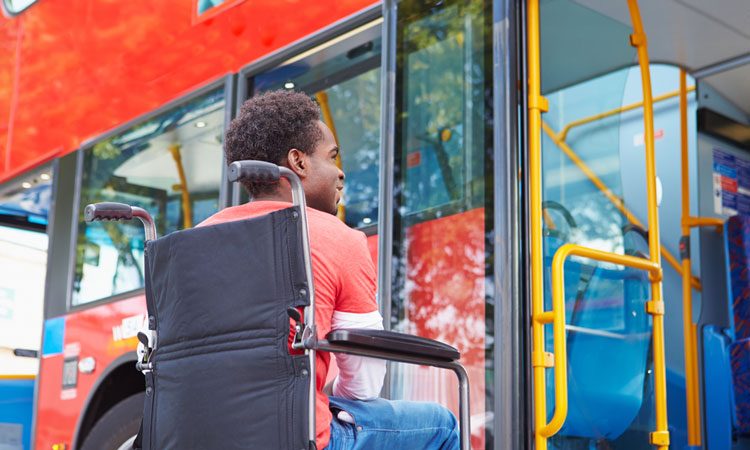Accessibility must be integral to new transport tech says UK government
- Like
- Digg
- Del
- Tumblr
- VKontakte
- Buffer
- Love This
- Odnoklassniki
- Meneame
- Blogger
- Amazon
- Yahoo Mail
- Gmail
- AOL
- Newsvine
- HackerNews
- Evernote
- MySpace
- Mail.ru
- Viadeo
- Line
- Comments
- Yummly
- SMS
- Viber
- Telegram
- Subscribe
- Skype
- Facebook Messenger
- Kakao
- LiveJournal
- Yammer
- Edgar
- Fintel
- Mix
- Instapaper
- Copy Link
Posted: 14 May 2019 | Intelligent Transport | No comments yet
Jesse Norman, Future of Mobility Minister, has stated that new transport technology must consider older people and those with mobility issues.


New modes of transport and pioneering technologies should transform travel for older people and those with disabilities, the UK government made clear at FLOURISH, a self-driving car project in Bristol aimed at improving the mobility of older people and those with mobility-related needs. Transport is vital in order to connect people right across the country, but those with disabilities or mobility issues can sometimes face unacceptable barriers to travel.
The Future of Mobility Minister, Jesse Norman, has set out that new technologies, including self-driving vehicles and the increased use of mobile apps, have the potential to revolutionise everyday journeys for people with mobility issues, and this must be a key consideration for those companies developing future transport.
In its ‘Future of mobility: urban strategy’, launched in March 2019, the government declared that transport innovations must be accessible by design in order to empower independent travel, in line with the ‘2018 Inclusive Transport Strategy’ which stated that advances in technology should provide opportunities for all. The trend towards ride-sharing, for example, will need to cater for wheelchair users and mobility scooters, as well as those who might not feel comfortable sharing with strangers due to mental health or developmental conditions.
Speaking at the FLOURISH event at the University of Bristol, Jesse Norman, said: “Self-driving technologies could greatly improve the mobility of vulnerable user groups, helping to address problems of isolation and loneliness across the country. The needs of older people, and those with visible or hidden disabilities, must be at the heart of all new modes of transport.”
This announcement follows the arrival of a range of exciting transport innovations, including the first trials of self-driving vehicles for blind veterans in the world. A joint venture launched by Blind Veterans UK and Aurrigo in April 2019, the self-driving pods are equipped with accessible features including bright colour edges, door openings, and an external sounds system that changes tone and rate when objects in the path are detected.
Chair of the Disabled Persons Transport Advisory Committee, Keith Richards, said: “Self-driving vehicles offer increased independence and options for travel but accessibility has to be at the centre of the development of the technology. The diverse needs of users, both inside and out of the vehicle, need to be considered from the outset as not everyone will react to an automated vehicle in the same way. People with hearing or visual disabilities for example need to be properly recognised and safeguarded.”
Related topics
Connected & Autonomous Vehicles, Mobility Services, Passenger Accessibility, Transport Governance & Policy, Workforce Inclusivity
Related cities
UK
Related organisations
Aurrigo, Blind Veterans UK, Department for Transport (DfT)
Related people
Jesse Norman, Keith Richards







